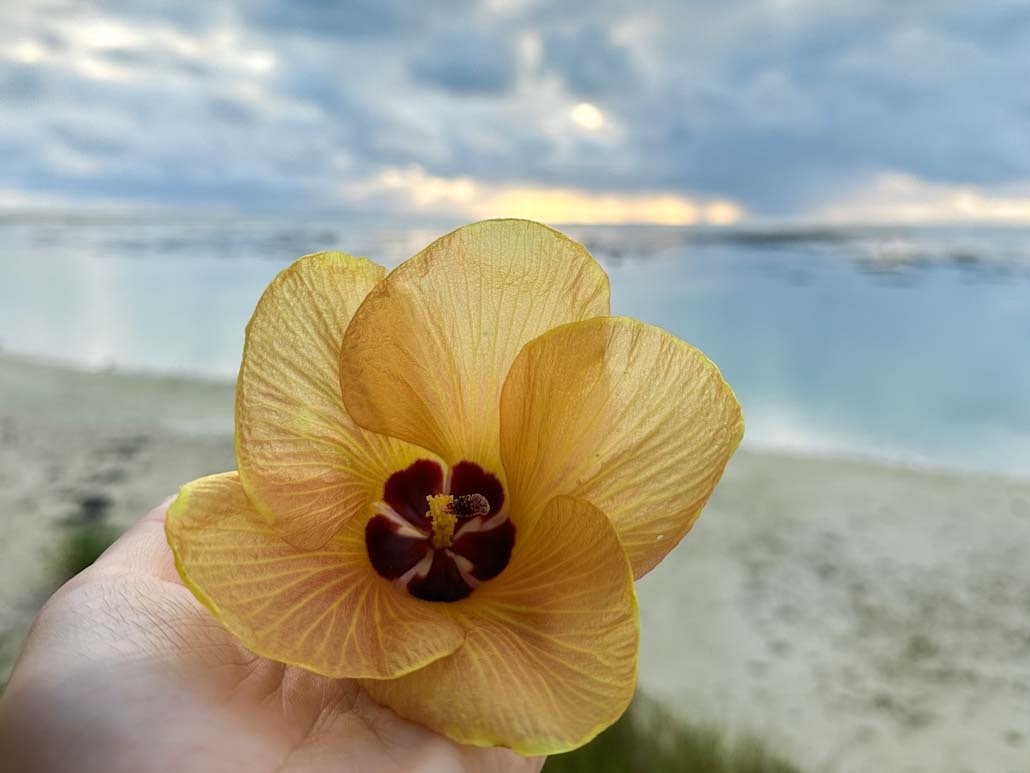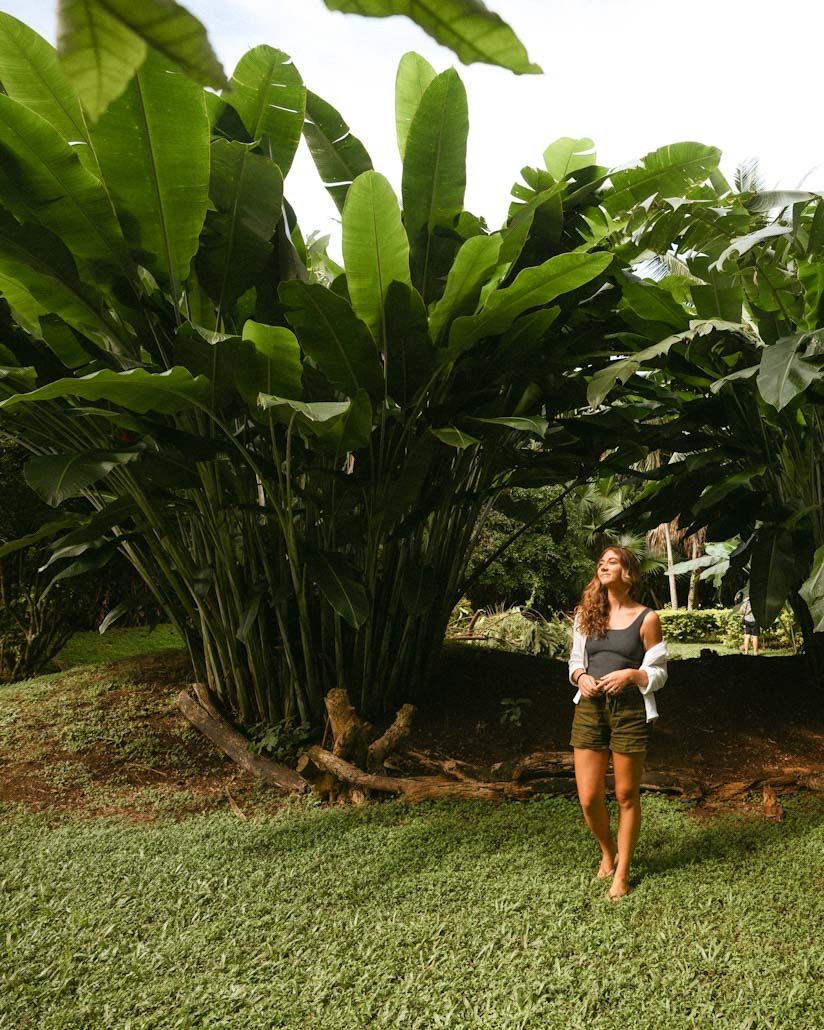8 Daily Practices To Cultivate & Maintain Happiness
Maintaining happiness can feel nebulous. After all, how can we possibly control all the circumstances of our lives to create the conditions for happiness and expect them to last?
That’s a trick question! Increasing happiness begins with a mindset about happiness and where it actually comes from.
You may have heard the quote, “Happiness is an inside job.” It sounds like a Hallmark card, but if you consider its true meaning, you’ll find nuance you can apply daily.
It all starts with answering a simple question with honesty: Are you really in control of any of the external circumstances of your life?
Each morning, we begin with our intentions — even subconsciously. We decide what we want to do, obtain, achieve, or where we are headed. However, as soon as we step into the world each day, we bump into the intentions and actions of other people and our environment, and the situation quickly gets complicated.
My happiness ethos is an inside-out approach. By acknowledging that the external world will always be unpredictable and sometimes unpleasant, we can choose to focus on the places where we can move the needle with our happiness. These include our mindset, outlook, focus, habits, and presence.
By shifting our perspective on happiness, we can more easily ride life’s inevitable ups and downs and maintain a more steady baseline of joy in our daily lives.
Here are 8 simple daily practices for maintaining your happiness ⬇️:
Gratitude expression 🫶🏼
Expressing gratitude is far more profound than initially meets the eye. Simply identifying a few things you are grateful for each morning primes your brain to see the positive and naturally find more in life to be thankful for. Gratitude is an upward spiral: the more you appreciate, the more you will appreciate. Beyond just identifying what you’re grateful for, see if you can conjure up the actual feelings of gratitude in your body. Make gratitude a daily habit that you track. You can speak your gratitude aloud to a friend or partner, journal a short list, or do a gratitude meditation.
It’s up to you how you express gratitude, but make sure you feel it every day! It’s especially important to find small points of gratitude if you’re having a bad day from an external standpoint. Practicing gratitude when life is challenging will pay dividends in smoother times.
Compassion for self & others 🫶🏼
Compassion is an energy that can completely shift how you see the world around you. Compassions literal definition is “with suffering,” compassion invites us to connect more deeply with others (and ourselves). Seeing and empathizing with others creates a more loving, connected, and less judgemental world.
But how does one do this in practice? Though compassion practice is non-secular, the Buddhist tradition shines a bright light on cultivating compassion and provides a general blueprint for the practice shared below.
Simply put, the practice is to sincerely wish and aspire for others to be free from suffering. Starting by contemplating a pet can be an easy way to get the energy of compassion flowing in your body. Think to yourself: may my pet be happy, may my pet be healthy, may my pet be free of suffering. Feel the emotions this heartfelt wish stirs up in you.
From there, you can move on to genuinely wishing well for your family and friends. The key is to truly feel the emotion of compassion and loving-kindness in your body.
Once you have mastered feeling compassion for those you have existing loving relationships with, you can expand it. Widen your circle of compassion by contemplating an acquaintance or someone you encounter regularly but don’t know well. Feel the emotions of wishing someone well who is a stranger. Widen your compassion further to wish well for your town, region, world, or all beings in the universe. Compassion has no limit.
Lastly, include yourself in your compassion practice. Say to yourself: may I be happy, may I be healthy, may I be free of suffering. See yourself as worthy of your own compassion. Experiencing this self-compassion can be life-changing. You deserve it.
Quiet & disconnected, tech-free time 🧘♀️
It’s no secret that phones and apps weren’t designed to make us happy; they were designed to keep us using them for as long as possible. Technology can quickly become a source of distraction from the beauty of life in front of us and distort how we view the world.
Here’s a mind-blowing question: What if your mind didn’t realize technology was not real? Whether you’re reading negatively biased news stories or our friends complaining on social media, our minds respond to what we view on our screens as if it were real life. This can release stress hormones that can cause physical damage to our bodies over time. This points to the importance of intentionality about our time spent online, and curating what information we allow in.
This isn’t to say we should aspire to be unaware of what is happening in the world at large. Making the world a better place requires our attention. But we have to know when to narrow our lens from the world at large, back to the world in front of us, specifically. Focusing on the problems ‘out there’ for too long will cause us to be negatively biased within ourselves, as well.
Spending time online also exposes you to unrealistic comparisons about what you ‘should’ look like, possess, or have achieved. These distortions can spill over into your life in the pursuit of external validation, items, or achievements that may not be aligned with what will truly make you happy!
Setting aside long chunks of intentionally tech free time can help us see the world that is directly in front of us more clearly. It gives us the space to appreciate our lives as they are, rather than as they ‘should’ be.
Deep connection with others 🫶🏼
Making deep connections with others is something that doesn’t have to take a lot of time. Though it is valuable to spend quality time with loved ones, the real difference is made with the quality of our attention. Are our phones away? Are we distracted in other ways? Are we listening, showing interest, and asking questions? Are we deeply present in the conversation?
Making the intention to show up deeply even when time is short makes all the difference in creating meaningful relationships, which are strongly associated with enduring happiness.
Depth does not need to be only reserved for our inner circle! We can practice depth in connection with even acquiantances or even strangers. Being present, making eye contact, allowing the other person feel seen and heard, and feeling compassion for person you are interacting with is a gift you can give to anyone, but it is also a gift you recieve at the same time.
Being barefoot in nature 🫶🏼
Connecting with nature is another way to place the mind and body in the here and now. Whether you think being barefoot outdoors is a wellness fad, or not, research has actually shown some surprising benefits to the practice that can support happiness!
Grounding yourself has the primary benefit of decreasing our primary stress hormone, cortisol. This has the benefits of improving sleep, reducing inflammation, improving circulation and heart health, and boosting your immune system through promoting white blood cell production. The practice of grounding has also been proven in and of itself to boost mood and pleasant feelings, as well as decrease muscle tension and subjective feelings of stress.
bright light exposure in the morning 🫶🏼
Our culture has long associated sunshine with happiness, but did you know it’s scientifically proven to support it? Bright light hitting our retinas (indirectly) is positively associated with serotonin production, one of our main feel good neurotransmitters. Insufficient sunlight exposure is associated with seasonal affective and other depressive disorders. Exposure to bright light first thing in the morning also helps to regulate your circadian sleep-wake cycle, which can decrease stress and improve overall energy.
Research studies suggest that about ten minutes of sunlight exposure as close to waking as possible is sufficient. Experts recommend not using sunglasses during this intentional light exposure to gain the maximum benefit. Of course, you should never look directly into the sun!
If you live somewhere that doesn’t experience a lot of sun certain times of year, no worries. Purchasing a bright (10,000 lux) LED light, commonly called a “Happy Light” and using it for ten minutes in the morning can help your body produce the serotonin it isn’t getting on a cloudy day.
Honoring past experiences & lessons 🫶🏼
Happiness does not come with the denial of painful past experiences and lessons. To honor the journey we have taken so far in life, and see how both the good and the bad has impacted us as individuals provides the most fertile ground for growth. Sometimes, we can undertake this introspection on our own, through practices such as journaling and meditation.
In other cases, it’s more appropriate to seek the assistance of a therapist or guide to process experiences and trauma, make meaning of our past, and put our lessons in context for today and the future. Though it need not be said, I’ll say it anyway: there is absolutely zero shame in recieving help, and I truly believe there are periods of all of our lives when we could greatly benefit from objective professional expertise.
In acknowledging lessons we may have learned the hard way, we show ourselves proof that we can grow through hard experiences. By processing and making meaning of the experiences outside of our control, we can learn to see life as a means of our own personal strengthening and spiritual evolution. We have the power to view our personal narratives as an authentic hero’s journey.
Though this kind of perspective is only achieved through the deep and often difficult work of introspection, it is time well invested.
Finding joy in the present 🫶🏼
It can be so tempting in our goal driven society to place our happiness up on a pedestal in the future. To say things like, “I’ll be happy when I find love,” or “I’ll be happy when I get that job,” or “I’ll be happy when I own a home”. To externalize our happiness in this way teaches us not to be satisfied in the present. When you condition your mind to be happy in a hypothetical future, you may find happiness to be fleeting when that future arrives.
The key is to find joy and gratitude where you are now. Right now. Even in this moment while reading this article, perhaps you can find joy in planning implementing a new mindfulness habit. If you’re sipping your tea, luxuriate in the pleasure of the taste and the warmth. As you take a walk, keep your mind in the present moment by enjoying the sunshine or the refreshing breeze.
Finding these small moments of enjoyment in your every day tasks conditions your mind to find more moments of joy. Do you see how this works? Choosing to find the little sparks of joy in the otherwise mundane gives your brain the memo that you’re open to more.
Stepping in alignment towards your future 🫶🏼
This last daily practice for cultivating happiness is all about making your own dreams come true. But, it can be difficult in a noisy world filled with advertising and social media to know what we truly want in the first place. If we aren’t clear about what we truly desire out of our lives from an aligned place, taking action towards our goals won’t lead us to feelings of fulfillment and happiness.
Finding alignment means sitting down and getting quiet. It means doing your best to strip away the noise of what society markets as success, and define this for yourself. Maybe having a prestigious job title, a large home, or material possessions isn’t important to you. You have to answer what is! Is it impact, adventure, connection, freedom, creativity, or something else? There is no wrong way to do this unless you’re listening to any voice that isn’t your own.
I start each year by thinking deeply about what I want in each area of my life, but any day is a good day to do this process! It’s important to define not only exactly what your vision is, but the reasons behind your desires. What would the achievement of your vision do for your life? What meaning would it bring?
And then, map out your plan to take action in alignment with the goals you’ve defined. Once you’ve decided on what you want, don’t allow the distractions around you to pull you on another path.
In conclusion…
As someone who has traversed inner work for many years, finding a path to authentic happiness has sometimes been challenging. I have found that cultivating a high baseline level of happiness that persists despite the ups and downs of life is most effectively done through conscious intention, introspection, and habits. Through these daily practices, my own life has transformed.
It’s worth saying that happiness is not something that can be found and kept. It must be cultivated in the daily habits that shift our ways of being and perceiving the world around us and within us. While we are alive, we must expect to continue to do this work with humility.
It is my humble intention for this article to share my experiences to be of service to you on your unique journey. I’d love to know more about your mindsets around happiness if you use any of these practices or if you have others which have been guiding forces for you!
















